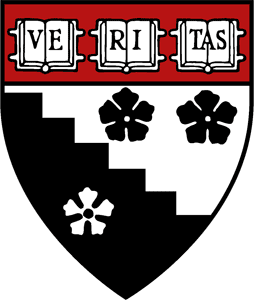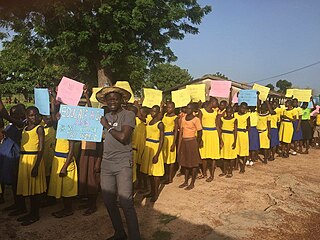Related Research Articles
Education reform is the name given to the goal of changing public education. The meaning and education methods have changed through debates over what content or experiences result in an educated individual or an educated society. Historically, the motivations for reform have not reflected the current needs of society. A consistent theme of reform includes the idea that large systematic changes to educational standards will produce social returns in citizens' health, wealth, and well-being.

A teacher, also called a schoolteacher or formally an educator, is a person who helps students to acquire knowledge, competence, or virtue, via the practice of teaching.
A Bachelor of Education is an undergraduate professional degree which prepares students for work as a teacher in schools. In some countries such as Tanzania and Kenya, additional tasks like field work and research are required in order for the student to be fully qualified to teach. It may also be accompanied with or followed by tests for licenses or certifications required for teachers in some areas.
Educational research refers to the systematic collection and analysis of data related to the field of education. Research may involve a variety of methods and various aspects of education including student learning, interaction, teaching methods, teacher training, and classroom dynamics.

Experiential education is a philosophy of education that describes the process that occurs between a teacher and student that infuses direct experience with the learning environment and content. The term is not interchangeable with experiential learning; however experiential learning is a sub-field and operates under the methodologies of experiential education. The Association for Experiential Education regards experiential education as "a philosophy that informs many methodologies in which educators purposefully engage with learners in direct experience and focused reflection in order to increase knowledge, develop skills, clarify values, and develop people's capacity to contribute to their communities". Experiential education is the term for the philosophy and educational progressivism is the movement which it informed. The Journal of Experiential Education publishes peer-reviewed empirical and theoretical academic research within the field.

The Georgetown University Law Center is the law school of Georgetown University, a private research university in Washington, D.C., United States. It was established in 1870 and is the largest law school in the United States by enrollment and the most applied to, receiving more full-time applications than any other law school in the country.

The Harvard Graduate School of Education (HGSE) is the education school of Harvard University, a private research university in Cambridge, Massachusetts. Founded in 1920, it was the first school to grant the EdD degree and the first Harvard school to award degrees to women. HGSE enrolls more than 800 students in its one-year master of education (Ed.M.) and three-year doctor of education leadership (Ed.L.D.) programs.

University of Illinois Chicago School of Law is the law school of the University of Illinois Chicago, a public research university in Chicago, Illinois. Founded in 1899, the school offers programs for both part-time and full-time students, with both day and night classes available, and offers January enrollment.
The Northeastern University School of Law (NUSL) is the law school of Northeastern University in Boston, Massachusetts. Founded as an evening program to meet the needs of its local community, NUSL is nationally recognized for its cooperative legal education and public interest law programs.

Chemistry education is the study of teaching and learning chemistry. It is one subset of STEM education or discipline-based education research (DBER). Topics in chemistry education include understanding how students learn chemistry and determining the most efficient methods to teach chemistry. There is a constant need to improve chemistry curricula and learning outcomes based on findings of chemistry education research (CER). Chemistry education can be improved by changing teaching methods and providing appropriate training to chemistry instructors, within many modes, including classroom lectures, demonstrations, and laboratory activities.

Inclusion in education refers to all students being able to access and gain equal opportunities to education and learning. It arose in the context of special education with an individualized education program or 504 plan, and is built on the notion that it is more effective for students with special needs to have the said mixed experience for them to be more successful in social interactions leading to further success in life. The philosophy behind the implementation of the inclusion model does not prioritize, but still provides for the utilization of special classrooms and special schools for the education of students with disabilities. Inclusive education models are brought into force by educational administrators with the intention of moving away from seclusion models of special education to the fullest extent practical, the idea being that it is to the social benefit of general education students and special education students alike, with the more able students serving as peer models and those less able serving as motivation for general education students to learn empathy.
Science Research Associates (SRA) was a Chicago-based publisher of educational materials and schoolroom reading comprehension products. The company was acquired by McGraw-Hill Education in the early 2000s.
Content-based instruction (CBI) is a significant approach in language education, designed to provide second-language learners instruction in content and language. CBI is considered an empowering approach which encourages learners to learn a language by using it as a real means of communication from the very first day in class. The idea is to make them become independent learners so they can continue the learning process even outside the class.

A legal clinic is a legal aid or law school program providing services to various clients and often hands-on-legal experience to law school students. Clinics are usually directed by clinical professors. Legal clinics typically do pro bono work in a particular area, providing free legal services to clients.
The City University of New York School of Law is a public law school in New York City. It was founded in 1983 as part of the City University of New York. CUNY School of Law was established as a public interest law school with a curriculum focused on integrating clinical teaching methods within traditional legal studies.
The Centre for Clinical Legal Education is an institute of Palacký University Faculty of Law, which focuses on practical ways of teaching prospective lawyers. While most of the syllabus in the Faculty's five-year Master program of Law and Jurisprudence comprises the Law in Books, the Centre focuses on Law in Action.

Teaching for Change is a non-profit organization founded in 1989 and based in Washington, D.C., with the motto of "building social justice, starting in the classroom." This organization uses publications, professional development, and parent organizing programs to accomplish this goal.
Samuel D. Hodge, Jr. is an American professor, author, and public speaker with a specialty involving the intersection of law and medicine. He teaches law, anatomy, and forensics at Temple University and serves as a mediator and neutral arbitrator for the Dispute Resolution Institute.
Richard Francis Gunstone is an Australian academic and researcher. He is the Emeritus Professor of Science and Technology Education at Monash University. He has authored or co-authored 8 books along with various monographs and chapters and has published over a hundred research papers. He has coedited 6 books providing reports of contemporary research in a particular area of science education. His principle research areas include teaching, curriculum, assessment, teacher development, science, physics and engineering.
Mary J. Schleppegrell is an applied linguist and Professor of Education at the University of Michigan. Her research and praxis are based on the principles of Systemic Functional Linguistics (SFL), a theory derived from the work of social semiotic linguist Michael Halliday. Schleppegrell is known for the SFL-based literacy practices she has continuously helped to develop for multilingual and English language learners throughout her decades long career, which she began as an educational specialist before transitioning to the field of applied linguistics. As a result, her publications demonstrate a deep understanding of both the theories and practices related to teaching and learning.
References
- ↑ "Law Center's Street Law Clinic Celebrates 40 Years in Operation - Georgetown University". www.georgetown.edu. Archived from the original on 2012-05-24.
- ↑ Arbetman, Lee; O'Brien, Edward L. (2016). Street Law: A Course in Practical Law (9th ed.). Glencoe/McGraw-Hill. ISBN 9780021429257.
- ↑ Remy, Ph.D., Richard C.; Ritchie, Ph.D., Donald A.; Arbetman, M.Ed., J.D., Lee; Hanson, M.S., Hanson; Morreale Scott, Ed.M., Lena (2018). United States Government: Our Democracy (1st ed.). McGraw-Hill Education. ISBN 9780076681136.
{{cite book}}: CS1 maint: multiple names: authors list (link) - ↑ Arbetman, Lee; O'Brien, Edward (2012). Street Law: Understanding Law and Legal Issues (1st ed.). McGraw-Hill Education. ISBN 9780076624058.